#How to Remove Microplastics
Explore tagged Tumblr posts
Text
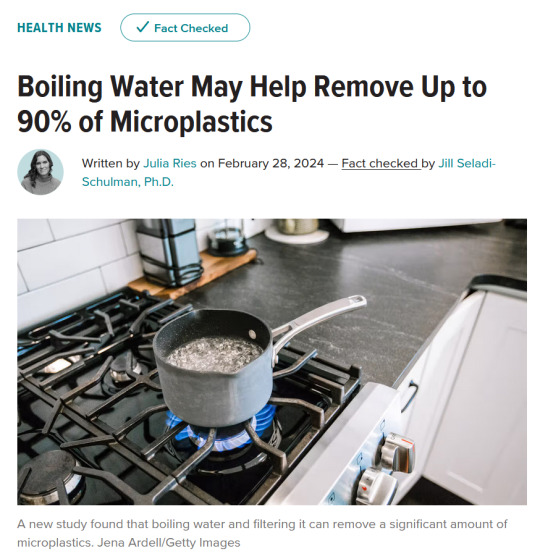
ETA: Article here (can't believe I forgot this rip)
A new study finds you can reduce the amount of microplastics you drink simply by boiling your water.
Scientists are just beginning to understand the health risks associated with microplastic exposure.
Nano- and microplastics are bits of plastic as tiny as one-thousandth of a millimeter in diameter.
Boiling and filtering your tap water may dramatically lower the amount of microplastics you drink, according to new research.
Recent studies have found that nano- and microplastics (NMPs), which are bits of plastic as tiny as one-thousandth of a millimeter in diameter, have been found in a host of products and even in tap water.
A new study, published February 28 in Environmental Science & Technology Letters, found that boiling mineral-rich water for just five minutes can reduce the amount of NMP you’re exposed to by up to 90%.
Scientists are just beginning to understand the health risks associated with microplastic exposureTrusted Source, but growing evidenceTrusted Source suggests the plastics can accumulate in the body and trigger oxidative stress, inflammation, insulin resistance, and liver issues.
Certain advanced water filtration systems can capture and help remove some NMPs from tap water. But researchers wanted to figure out other options to remove microplastics, especially since in poorer countries cheaper, more accessible solutions for clean water are needed.
Boiling water may be a safe, simple solution that can effectively decontaminate household tap water, the new findings suggest.
“Boiling water before drinking is a great example of an ancient cultural practice that can help reduce an environmental exposure,” Dr. Luz Claudio, PhD, a professor of environmental medicine and public health at the Icahn School of Medicine at Mount Sinai, told Healthline.
Claudio was not involved in the study.
How boiling water can help remove microplastics
The researchers found simply boiling water is the first step to removing NMPs from tap water.
The researchers collected multiple samples of tap water from Guangzhou, China and contaminated the samples with varying levels of NMPs.
Each sample was boiled for five minutes then left to cool for 10 minutes.
Boiling hard water that’s rich with minerals — such as calcium or magnesium — creates a chalk-like residue known as limescale, or calcium carbonate (CaCO3), which can trap the plastics.
That solid, chalky residue then had to be separated and removed from the water with a standard coffee filter or stainless steel filter, thereby removing NMPs.
The team found that the impact was greatest in harder water: In samples that had 300 milligrams of CaCO3, for example, nearly 90% of NMPs were removed.
In softer water samples with less than 60 mg of CaCO3, roughly 25% of NMPs were removed.
“What’s important to note here is that the effectiveness of trapping these micro/nano plastics in these mineral solids is tied to how hard the water is – the harder the water, the more solids are formed, the more microplastics are trapped,” Dr. Anja Brandon, PhD, the associate director of U.S. plastics policy at Ocean Conservancy and an environmental engineer, told Healthline.
Brandon was not involved in the study...
How to limit your exposure to microplastics
Anyone who wishes to boil their water should do so in a glass or stainless steel pot.
After boiling the water for about five minutes, let it cool, and do not stir it, Claudio says.
The microplastics need to bind to the calcium and fall to the bottom of the pot so they can filtered or scooped out."
-via Healthline, February 28, 2024
#microplastics#nanoplastics#hard water#calcium carbonate#public health#plastic pollution#good news#hope
3K notes
·
View notes
Text
Apple fucked us on right to repair (again)

Today (September 22), I'm (virtually) presenting at the DIG Festival in Modena, Italy. Tonight, I'll be in person at LA's Book Soup for the launch of Justin C Key's "The World Wasn’t Ready for You." On September 27, I'll be at Chevalier's Books in Los Angeles with Brian Merchant for a joint launch for my new book The Internet Con and his new book, Blood in the Machine.

Right to repair has no cannier, more dedicated adversary than Apple, a company whose most innovative work is dreaming up new ways to sneakily sabotage electronics repair while claiming to be a caring environmental steward, a lie that covers up the mountains of e-waste that Apple dooms our descendants to wade through.
Why does Apple hate repair so much? It's not that they want to poison our water and bodies with microplastics; it's not that they want to hasten the day our coastal cities drown; it's not that they relish the human misery that accompanies every gram of conflict mineral. They aren't sadists. They're merely sociopathically greedy.
Tim Cook laid it out for his investors: when people can repair their devices, they don't buy new ones. When people don't buy new devices, Apple doesn't sell them new devices. It's that's simple:
https://www.inverse.com/article/52189-tim-cook-says-apple-faces-2-key-problems-in-surprising-shareholder-letter
So Apple does everything it can to monopolize repair. Not just because this lets the company gouge you on routine service, but because it lets them decide when your phone is beyond repair, so they can offer you a trade-in, ensuring both that you buy a new device and that the device you buy is another Apple.
There are so many tactics Apple gets to use to sabotage repair. For example, Apple engraves microscopic Apple logos on the subassemblies in its devices. This allows the company to enlist US Customs to seize and destroy refurbished parts that are harvested from dead phones by workers in the Pacific Rim:
https://repair.eu/news/apple-uses-trademark-law-to-strengthen-its-monopoly-on-repair/
Of course, the easiest way to prevent harvested components from entering the parts stream is to destroy as many old devices as possible. That's why Apple's so-called "recycling" program shreds any devices you turn over to them. When you trade in your old iPhone at an Apple Store, it is converted into immortal e-waste (no other major recycling program does this). The logic is straightforward: no parts, no repairs:
https://www.vice.com/en/article/yp73jw/apple-recycling-iphones-macbooks
Shredding parts and cooking up bogus trademark claims is just for starters, though. For Apple, the true anti-repair innovation comes from the most pernicious US tech law: Section 1201 of the Digital Millennium Copyright Act (DMCA).
DMCA 1201 is an "anti-circumvention" law. It bans the distribution of any tool that bypasses "an effective means of access control." That's all very abstract, but here's what it means: if a manufacturer sticks some Digital Rights Management (DRM) in its device, then anything you want to do that involves removing that DRM is now illegal – even if the thing itself is perfectly legal.
When Congress passed this stupid law in 1998, it had a very limited blast radius. Computers were still pretty expensive and DRM use was limited to a few narrow categories. In 1998, DMCA 1201 was mostly used to prevent you from de-regionalizing your DVD player to watch discs that had been released overseas but not in your own country.
But as we warned back then, computers were only going to get smaller and cheaper, and eventually, it would only cost manufacturers pennies to wrap their products – or even subassemblies in their products – in DRM. Congress was putting a gun on the mantelpiece in Act I, and it was bound to go off in Act III.
Welcome to Act III.
Today, it costs about a quarter to add a system-on-a-chip to even the tiniest parts. These SOCs can run DRM. Here's how that DRM works: when you put a new part in a device, the SOC and the device's main controller communicate with one another. They perform a cryptographic protocol: the part says, "Here's my serial number," and then the main controller prompts the user to enter a manufacturer-supplied secret code, and the master controller sends a signed version of this to the part, and the part and the system then recognize each other.
This process has many names, but because it was first used in the automotive sector, it's widely known as VIN-Locking (VIN stands for "vehicle identification number," the unique number given to every car by its manufacturer). VIN-locking is used by automakers to block independent mechanics from repairing your car; even if they use the manufacturer's own parts, the parts and the engine will refuse to work together until the manufacturer's rep keys in the unlock code:
https://pluralistic.net/2023/07/24/rent-to-pwn/#kitt-is-a-demon
VIN locking is everywhere. It's how John Deere stops farmers from fixing their own tractors – something farmers have done literally since tractors were invented:
https://pluralistic.net/2022/05/08/about-those-kill-switched-ukrainian-tractors/
It's in ventilators. Like mobile phones, ventilators are a grotesquely monopolized sector, controlled by a single company Medtronic, whose biggest claim to fame is effecting the world's largest tax inversion in order to manufacture the appearance that it is an Irish company and therefore largely untaxable. Medtronic used the resulting windfall to gobble up most of its competitors.
During lockdown, as hospitals scrambled to keep their desperately needed supply of ventilators running, Medtronic's VIN-locking became a lethal impediment. Med-techs who used donor parts from one ventilator to keep another running – say, transplanting a screen – couldn't get the device to recognize the part because all the world's civilian aircraft were grounded, meaning Medtronic's technicians couldn't swan into their hospitals to type in the unlock code and charge them hundreds of dollars.
The saving grace was an anonymous, former Medtronic repair tech, who built pirate boxes to generate unlock codes, using any housing they could lay hands on to use as a case: guitar pedals, clock radios, etc. This tech shipped these gadgets around the world, observing strict anonymity, because Article 6 of the EUCD also bans circumvention:
https://pluralistic.net/2020/07/10/flintstone-delano-roosevelt/#medtronic-again
Of course, Apple is a huge fan of VIN-locking. In phones, VIN-locking is usually called "serializing" or "parts-pairing," but it's the same thing: a tiny subassembly gets its own microcontroller whose sole purpose is to prevent independent repair technicians from fixing your gadget. Parts-pairing lets Apple block repairs even when the technician uses new, Apple parts – but it also lets Apple block refurb parts and third party parts.
For many years, Apple was the senior partner and leading voice in blocking state Right to Repair bills, which it killed by the dozen, leading a coalition of monopolists, from Wahl (who boobytrap their hair-clippers with springs that cause their heads irreversibly decompose if you try to sharpen them at home) to John Deere (who reinvented tenant farming by making farmers tenants of their tractors, rather than their land).
But Apple's opposition to repair eventually became a problem for the company. It's bad optics, and both Apple customers and Apple employees are volubly displeased with the company's ecocidal conduct. But of course, Apple's management and shareholders hate repair and want to block it as much as possible.
But Apple knows how to Think Differently. It came up with a way to eat its cake and have it, too. The company embarked on a program of visibly support right to repair, while working behind the scenes to sabotage it.
Last year, Apple announced a repair program. It was hilarious. If you wanted to swap your phone's battery, all you had to do was let Apple put a $1200 hold on your credit card, and then wait while the company shipped you 80 pounds' worth of specialized tools, packed in two special Pelican cases:
https://pluralistic.net/2022/05/22/apples-cement-overshoes/
Then, you swapped your battery, but you weren't done! After your battery was installed, you had to conference in an authorized Apple tech who would tell you what code to type into a laptop you tethered to the phone in order to pair it with your phone. Then all you had to do was lug those two 40-pound Pelican cases to a shipping depot and wait for Apple to take the hold off your card (less the $120 in parts and fees).
By contrast, independent repair outfits like iFixit will sell you all the tools you need to do your own battery swap – including the battery! for $32. The whole kit fits in a padded envelope:
https://www.ifixit.com/products/iphone-x-replacement-battery
But while Apple was able to make a showy announcement of its repair program and then hide the malicious compliance inside those giant Pelican cases, sabotaging right to repair legislation is a lot harder.
Not that they didn't try. When New York State passed the first general electronics right-to-repair bill in the country, someone convinced New York Governor Kathy Hochul to neuter it with last-minute modifications:
https://arstechnica.com/gadgets/2022/12/weakened-right-to-repair-bill-is-signed-into-law-by-new-yorks-governor/
But that kind of trick only works once. When California's right to repair bill was introduced, it was clear that it was gonna pass. Rather than get run over by that train, Apple got on board, supporting the legislation, which passed unanimously:
https://www.ifixit.com/News/79902/apples-u-turn-tech-giant-finally-backs-repair-in-california
But Apple got the last laugh. Because while California's bill contains many useful clauses for the independent repair shops that keep your gadgets out of a landfill, it's a state law, and DMCA 1201 is federal. A state law can't simply legalize the conduct federal law prohibits. California's right to repair bill is a banger, but it has a weak spot: parts-pairing, the scourge of repair techs:
https://www.ifixit.com/News/69320/how-parts-pairing-kills-independent-repair
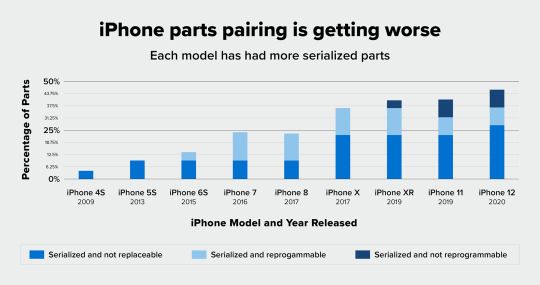
Every generation of Apple devices does more parts-pairing than the previous one, and the current models are so infested with paired parts as to be effectively unrepairable, except by Apple. It's so bad that iFixit has dropped its repairability score for the iPhone 14 from a 7 ("recommend") to a 4 (do not recommend):
https://www.ifixit.com/News/82493/we-are-retroactively-dropping-the-iphones-repairability-score-en
Parts-pairing is bullshit, and Apple are scum for using it, but they're hardly unique. Parts-pairing is at the core of the fuckery of inkjet printer companies, who use it to fence out third-party ink, so they can charge $9,600/gallon for ink that pennies to make:
https://www.eff.org/deeplinks/2020/11/ink-stained-wretches-battle-soul-digital-freedom-taking-place-inside-your-printer
Parts-pairing is also rampant in powered wheelchairs, a heavily monopolized sector whose predatory conduct is jaw-droppingly depraved:
https://uspirgedfund.org/reports/usp/stranded
But if turning phones into e-waste to eke out another billion-dollar stock buyback is indefensible, stranding people with disabilities for months at a time while they await repairs is so obviously wicked that the conscience recoils. That's why it was so great when Colorado passed the nation's first wheelchair right to repair bill last year:
https://www.eff.org/deeplinks/2022/06/when-drm-comes-your-wheelchair
California actually just passed two right to repair bills; the other one was SB-271, which mirrors Colorado's HB22-1031:
https://leginfo.legislature.ca.gov/faces/billNavClient.xhtml?bill_id=202320240SB271
This is big! It's momentum! It's a start!
But it can't be the end. When Bill Clinton signed DMCA 1201 into law 25 years ago, he loaded a gun and put it on the nation's mantlepiece and now it's Act III and we're all getting sprayed with bullets. Everything from ovens to insulin pumps, thermostats to lightbulbs, has used DMCA 1201 to limit repair, modification and improvement.
Congress needs to rid us of this scourge, to let us bring back all the benefits of interoperability. I explain how this all came to be – and what we should do about it – in my new Verso Books title, The Internet Con: How to Seize the Means of Computation.
https://www.versobooks.com/products/3035-the-internet-con


If you'd like an essay-formatted version of this post to read or share, here's a link to it on pluralistic.net, my surveillance-free, ad-free, tracker-free blog:
https://pluralistic.net/2023/09/22/vin-locking/#thought-differently

Image: Mitch Barrie (modified) https://commons.wikimedia.org/wiki/File:Daytona_Skeleton_AR-15_completed_rifle_%2817551907724%29.jpg
CC BY-SA 2.0 https://creativecommons.org/licenses/by-sa/2.0/deed.en
--
kambanji (modified) https://www.flickr.com/photos/kambanji/4135216486/
CC BY 2.0 https://creativecommons.org/licenses/by/2.0/
--
Rawpixel (modified) https://www.rawpixel.com/image/12438797/png-white-background
#pluralistic#vin locking#apple#right to repair#california#ifixit#iphones#sb244#parts pairing#serialization#dmca 1201#felony contempt of business model#ewaste#repairwashing#fuckery
1K notes
·
View notes
Text
The Best News of Last Week - August 21, 2023
🌊 - Discover the Ocean's Hidden Gem Deep down in the Pacific
1. Massachusetts passed a millionaire's tax. Now, the revenue is paying for free public school lunches.
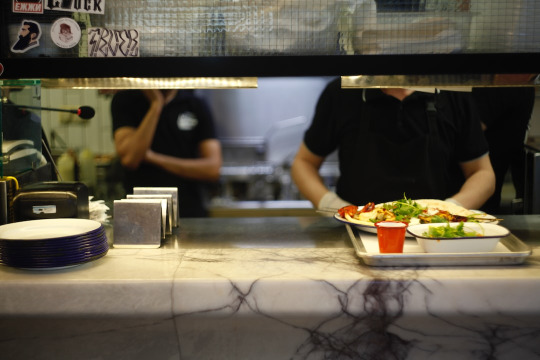
Every kid in Massachusetts will get a free lunch, paid for by proceeds from a new state tax on millionaires.
A new 4% tax on the state's wealthiest residents will account for $1 billion of the state's $56 billion fiscal budget for 2024, according to state documents. A portion of those funds will be used to provide all public-school students with free weekday meals, according to State House News Service.
2. Plant-based filter removes up to 99.9% of microplastics from water
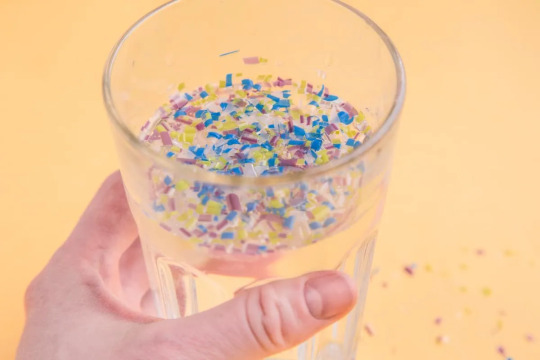
Researchers may have found an effective, green way to remove microplastics from our water using readily available plant materials. Their device was found to capture up to 99.9% of a wide variety of microplastics known to pose a health risk to humans.
3. Scientists Find A Whole New Ecosystem Hiding Beneath Earth's Seafloor
youtube
Most recently, aquanauts on board a vessel from the Schmidt Ocean Institute used an underwater robot to turn over slabs of volcanic crust in the deep, dark Pacific. Underneath the seafloor of this well-studied site, the international team of researchers found veins of subsurface fluids swimming with life that has never been seen before.
It's a whole new world we didn't know existed.
4. How solar has exploded in the US in just a year

Solar and storage companies have announced over $100 billion in private sector investments in the US since the passage of the Inflation Reduction Act (IRA) a year ago, according to a new analysis released today by the Solar Energy Industries Association (SEIA).
Since President Joe Biden signed the IRA in August 2022, 51 solar factories have been announced or expanded in the US.
5. Researchers have identified a new pack of endangered gray wolves in California

A new pack of gray wolves has shown up in California’s Sierra Nevada, several hundred miles away from any other known population of the endangered species, wildlife officials announced Friday.
It’s a discovery to make researchers howl with delight, given that the native species was hunted to extinction in California in the 1920s. Only in the past decade or so have a few gray wolves wandered back into the state from out-of-state packs.
6. Record-Breaking Cleanup: 25,000 Pounds of Trash Removed from Pacific Garbage Patch

Ocean cleanup crews have fished out the most trash ever taken from one of the largest garbage patches in the world.
The Ocean Cleanup, a nonprofit environmental engineering organization, saw its largest extraction earlier this month by removing about 25,000 pounds of trash from the Great Pacific Garbage Patch, Alex Tobin, head of public relations and media for the organization
7. The Inflation Reduction Act Took U.S. Climate Action Global

The U.S. Inflation Reduction Act (IRA) aimed to promote clean energy investments in the U.S. and globally. In its first year, the IRA successfully spurred other nations to develop competitive climate plans.
Clean energy projects in 44 U.S. states driven by the IRA have generated over 170,600 jobs and $278 billion in investments, aligning with Paris Agreement goals.
---
That's it for this week :)
This newsletter will always be free. If you liked this post you can support me with a small kofi donation here:
Buy me a coffee ❤️
Also don’t forget to reblog this post with your friends.
1K notes
·
View notes
Text
Northwestern [University] researchers have developed a specialized sponge that slurps up pollutants, offering a reusable and cost-effective solution to water contamination.
The big picture: As more waterways contend with algae blooms and pollution caused by minerals from agricultural runoff and industrial manufacturing processes, new methods to remove pollutants like phosphate, copper and zinc are emerging across fields. While solutions exist, they tend to be costly and can be used just once.
How it works: The sponge, coated with nanoparticles that have an affinity for pollutants, can collect metals like zinc and copper, as well as phosphate, and in previous iterations has successfully pulled lead from water, and microplastics and oil from lakes and oceans. It then releases these valuable resources when it is exposed to different pH’s.
“The technology can be used as a universal sorbent or ‘catch-all,’ or it can be tailored to certain groups of contaminants like metals, plastics or nutrients,” said principal investigator Vinayak Dravid.
43 notes
·
View notes
Text
ONE
--
Emily had never been to a church funeral.
"Well," said Agatha, checking her pale mass of hair in the hallway mirror. "You haven't left the house in a month, so you might consider it a social event. You can't wear that," she added, nodding at the strap of Emily's dress.
"I can't?" It was black, and light enough for the late summer heat. She'd thought it was perfect: no cleavage, no knees, black, and not scooped off the detritus of her bedroom floor.
"You need something that covers your shoulders for the church — get a shawl or something."
Of course, there were no black shawls in Emily's closet. She was nineteen, not a hundred and ninety. She borrowed a shawl from her mother instead, a dove-grey pashmina that was way too heavy for the oppressive heat outside.
"And now we're late. Of course we are." Agatha continued muttering darkly in this vein as she pulled out of the driveway.
Emily sat in tense silence in the passenger seat, certain that nothing she might say would defuse her mother's ire. She applied herself to aimless scrolling through her phone. It was silent, but Agatha still shot the device a disapproving glance.
They merged into the crawling line of vehicles winding its way through their urban neighbourhood, heading further south into the city proper.
"We should just go straight to the church," Agatha sighed eventually, drumming her fingers on the steering wheel. "It'll be less embarrassing."
"Who is Michael, anyway?" Emily dared to ask.
"He was Clara's husband. She's my second cousin." She flicked an indicator on and dipped into a back street, which may not have actually gotten her to the church faster than their more direct route but which certainly allowed her to drive at a faster speed. "I only met him a few times, but I'm sure Clara must be distraught."
"What happened to him, then?"
"He fell down the stairs, I think."
"Fell down the stairs?" Emily repeated, bewildered. "Do people really die of that? Like, actually?"
"Apparently."
"Wow. Um. Okay. So Clara's my… third cousin?"
"No." Agatha made a brief, agonised face at this. "She's your second cousin once removed. What do they even teach you in school and how did you graduate?"
"Uh, well, they weren't covering, like, family relative taxonomy in year twelve bio, sorry."
"Genealogy, Emily."
"Okay. So if you don't know Michael, why are we going to his funeral?"
"For Clara, mostly. She's always been a bit… delicate. She's like you that way."
Emily didn't now quite what to say in response to this, so she didn't say anything for a long few seconds, which went on and on unbroken as they waited for a set of lights to change.
"They do think it's, like, genetic," she said, carefully not looking over at her mother. She caught the way Agatha looked sharply over at her anyway, right in her peripheral vision.
"Well. We didn't have mental problems in the seventies," she said after a hanging moment. "She was just weird little cousin Clara. And then I'm afraid she and I rather drifted apart, with her getting married so young. We didn't have much in common. She and Michael must have been together for… oh, surely it's twenty five, thirty years? You know I don't even talk to your father —" (Of this, Emily was very aware.) "— And I still can't imagine what it'd be like for him to die. I can't imagine what she's going through."
Emily nodded, and went back to her social media feed. A friend, presumably having a much better day than Emily was, had posted a photo of her hand holding a giant gelato cone. A streak of lurid blue melt dripped down her fingers. She liked it and kept scrolling.
Messages about mindfulness, productivity hacks and carpe diem drifted by with the same dull feeling as the ads for cosmetics and warnings about dangerous chemicals in tap water. Microplastics. Hitting your protein goals. Scroll, scroll, scroll.
'Balance your hormones,' someone had written. 'Try moon-washed nutrient water. It's perfectly pH neutral!'
Emily chewed her bottom lip.
As they finally got away from the tiny side streets and the traffic and approached a tall, inner-city church, Agatha began nervously reminding Emily of things: she did not know if there'd be communion, but Emily wasn't to take it if there was, being as she wasn't confirmed, and that she should stand and sit only when other people did, not to fidget or talk, to put her phone away, to try not to be inappropriate for once.
Emily let this familiar refrain wash right over her.
The church was well-attended, with a mix of people in dark, formal clothing coming together in twos and threes to chat in the car park before drifting to the old, imposing church. Emily wasn't even the only person wearing a slightly mismatched shawl over her black, summery clothes.
There were plenty of expensive cars in the car park, though. Mercedes, Ferrari, Lambo, about a million BMWs. Agatha's energy-efficient Toyota hybrid looked squat, boxy and distinctly out of place among them.
Emily opened the passenger-side door, misjudged the amount of space she had, and thumped its edge into the car next to them.
"Please tell me you didn't scratch it. That car's probably worth more than you are."
The mark was tiny. They wouldn't even notice. Probably. Almost certainly.
"It's fine," said Emily, with a confidence she didn't feel.
Agatha looked skywards, breathed out, and chose not to argue about it.
The church was cool inside, stuffy and smelling of dust and incense. A veil of silence descended along with the shade, by common consent, at just the moment the threshold was crossed. All sanctioned conversations fell away and there were only footsteps and little whispers. They turned right, and there was the big room with its pointed stained glass windows and long wooden pews on either side. Up at the front was a step up to a raised platform — or a stage, like a performance — and then up there was both the altar and the casket, both curiously similar, draped in their thick fabrics.
The funeral-goers all knelt to the altar at a certain point, each in grim silence after the one before. They walked slowly to give this ceremony the time it needed, and as they approached, Agatha poked her in the ribs, so Emily knelt, too, right in the middle of the centre aisle between pews.
In the silence, her knees went CRACK, echoing up to the roof of a building designed to augment sermons. Heads swivelled towards her, eyebrows raised, glances of confusion.
Agatha gripped her arm around the elbow, creasing her shawl beneath her bony fingers. She didn't say anything, beholden to the same spell of silence as everyone else.
"I can't help my knees, Ma," Emily whispered into her hair as they slid into a pew, scooching right down to the end so Emily was between Agatha and the wall. Agatha looked sideways at her but said nothing.
What followed was a bewildering service. There was of course a lot of religion: in fact, it seemed uncomfortably to Emily as though the priest was kind of hijacking the experience of grief as a marketing opportunity for the afterlife. There were call-and-response style prayers, a lot of mixed murmuring — some people seemed to say 'and with your spirit,' and others murmured 'and also with you,' which made Agatha huff out a short, unimpressed breath.
Phrases that must have been Latin came and passed, and Emily's attention waned. She jiggled her leg until Agatha put one hand on her knee to keep it still and then she chewed on her thumbnail until her dull teeth worked their way through it. It was dim enough in the church that if she tried to check her phone she knew everyone behind them would be able to see the light of the screen, which was pretty rude to the dead guy. Time dilated absurdly before her, though, as it always did when she had to sit still and quiet, unoccupied, for any significant length of time.
"Em, if I have to take you outside like a fussy baby," hissed Agatha, beneath the cover of a group prayer, to which everyone somehow knew the words. "Get your damn hands out of your mouth!"
"How long is this?" Emily whispered back.
"Just speeches. Then we go to the cemetery."
Speeches. Great.
But it appeared Michael had left no children to mourn him, so it was just the priest's comments, and then the wife — Agatha's relative — taking the lectern up there.
Clara did not look much like Emily, or even like Agatha. Where they were tall and colourlessly pale, with dishwater blond hair and sharp faces, Clara was short and had thick, black hair swept back in a riot of curls. She had not borrowed mismatched clothing for the church. Her shirt was black and lacy and buttoned right up to her throat.
Her face was made up immaculately despite her wet eyes and the high pallor of stress. She was almost intimidatingly pretty: soft, lush, lacy and feminine, with painted lips and damp, black, fluttering eyelashes.
It was uncomfortable to hear her talk into the echoing silence with a heartbreaking catch in her husky voice.
Emily paid more attention to how she looked and sounded, rather than what she said. She caught little of the contents of the speech after, "When I married Michael, twenty-seven years ago…"
If that was true, she was probably, like, nearly fifty. Her makeup was really good. Did people get makeup artists in for funerals? It seemed like that might have been in bad taste.
The service at last ended, with everyone's final, murmured 'thanks be to God,' grimly hilarious in the context of its length and Emily's boredom.
Then they all spilled out of the church, blinking and squinting in the dazzling late summer sunlight with everyone talking louder and louder, like noise and colour had been injected back into the world. They piled into their stifling cars out in the broad concrete parking lot and drove to the cemetery for one final graveside benediction.
Despite the stuffy heat, Emily was pleased to get back in her mother's car and wind down the windows so she could feel the artificial breeze of the car's movement. That breeze initially lasted only as long as one lap around the car park. Then, she pulled out her phone as they waited in the long line of luxury sedans and sports cars to exit the car park.
Absolutely nothing cool had happened on social media in the interim. But several people had posted photos of their cats, and one person had reposted a video of an undernourished teenager dancing as a voice-over shared some information about women's health and the dangers of promiscuity.
"That's rubbish," opined Agatha. "Where do people come up with this stuff? I hope they taught you better in school. God knows they bloody charged me for it."
Emily tapped the volume control and scrolled past, but forbore to mention how Agatha had graduated, like, thirty years ago and probably didn't know what she was talking about either.
They followed a car out, finally, and crawled through the three o'clock traffic all the way to the cemetery.
Emily did not spend much time in cemeteries and she was a little surprised by this one. Behind the wrought iron gates it was light-filled, verdant, dotted with flowers and beautifully kept. The mourners were gathered in a black knot around Michael's freshly opened grave site. Emily spotted several shawls now trailing from handbags or hooked over arms, and gratefully left hers behind in the car.
The time at the graveside was mercifully brief. There were tears, and someone poured some home-made spirits over the box they lowered in, and the priest committed it to the ground with a solemn prayer.
Clara, a small, dark figure standing alone in the sunshine, looked stiff and cold and unapproachable. She cried with a dignity Emily could never have achieved. There was no crumple-faced sobbing for Clara. Instead, tears leaked from her shining eyes and her red mouth trembled. She'd even brought a little floral handkerchief that went back into her sleeve after she had gently dabbed it at her eyes.
Emily watched this display until Clara looked directly at her across the grave, and met her stare with her own glossy dark eyes. Emily looked away, then, almost embarrassed to have been caught staring. There wasn't very much else of interest to look at, though. It was a funeral. There was nothing but grief on display, and if she ought not to stare at it, she didn't know where to look.
The headstones weren't close enough for her to make out any inscriptions, and Emily figured that once you'd seen one carefully maintained grave set in pristine greenery upon a manicured, sunlit hill, you'd probably seen them all. It might be a kind of nice place to end up, if you were dead, she guessed, although she didn't give thoughts of death much consequence as a rule.
At the end of all the crying at the graveside, they returned to their cars again. This time, Emily spotted a gleaming Lexus, which was, like, basically the same as her mum's 2000s Prius, really. They wove back through the traffic to the wake. This was the last event of the funeral, which was finally, blissfully, free of the priest, and was at least guaranteed to have little bits of picky finger food to fill her belly.
"City parking," sighed Agatha, as they drove up a ramp and into an off-street garage. The after-hours rate applied, so they got away with only surrendering twenty-six dollars, paid in advance, of which Emily supplied ten dollars when they discovered the credit card reader was broken.
"If we're here more than two hours," Agatha growled, stabbing at the buttons, "I'll stab myself in the eye."
"What happened to supporting Clara?" Emily needled.
"Well, Clara isn't supporting my feet. You wait until you're fifty-five and stumbling around in high heels all afternoon."
Emily did not think this very likely. She felt the time when women wore heels out of obligation was pretty well in the past right now, and would be a distant memory by her fifties.
"You can swap with me if you like," she offered as they got into the elevator and ascended from the car park levels with a dull rattle.
For a moment Agatha looked like she was considering Emily's flat sandals very intently indeed, and then she shook her head. "No. We'll sit down up there. You'll see."
The wake was held in a nineteenth-floor bar with low lighting, masses of greenery and long marble bench tops. It had a terrace balcony, enclosed in heavy wrought iron curlicues, which had been surrendered to the smokers. The air conditioning was turned up so high that Emily wished she'd brought the shawl.
Immediately upon entry, there was a huge photograph of the deceased projected onto the wall. Emily did not recognise his face, although she supposed she might have met him when she was much younger. He was… old? Older than Clara, for sure. But if you really liked smirking older men with roughly symmetrical features and salt and pepper hair, she guessed you could do worse than a guy who looked like that — and he must have been loaded, too, because all his friends were, and the venue was nice and the drinks were free.
Over the next twenty minutes, people trickled in, arranged in hushed knots of two and three, shivering in the air conditioning. Emily quickly lost her mother to the throng.
"How did you know Michael?" people asked again and again, a grim line of black dresses and charcoal suits that blurred together within minutes. Emily heard countless stories of grief from people who cared much more than she did, and nodded sympathetically along. She remembered no names and would not have recognised most of the faces a second time.
At some point — she lost track of the passage of time — Agatha emerged from the blur of low-lit greenery and black outfits and grabbed her arm.
"My daughter — I don't know if you remember — "
And then Emily found herself face to face with Clara. Up close, she was a picture of wounded femininity: a brave face, marked and drawn with recent grief. She licked her lips nervously before she spoke, and Emily watched, curiously compelled by the wet shine of saliva on her red lipstick.
"I was certainly aware of the existence of a daughter. I imagined her rather younger, though," she added. Her dark eyes lingered on the shoulder strap of Emily's dress.
Emily tried to think of something to say. "Time passes faster than you expect, I guess."
Agatha shifted on her uncomfortable heels.
"Oh, yes," Clara said. "It's always right behind you, and you can usually hear it gaining on you."
"We were just discussing how Clara needs help clearing out their country house now, you know, sorting through Michael's things — I've told her you're not doing much and you'd appreciate the chance to get out of the city."
What? Emily blanched, tearing her eyes away from Clara's pretty face to look at her mother instead. She blinked rapidly. "Oh. Um. Well."
"What?" The sound of Agatha's voice was a warning. Her lips thinned. "You should be delighted for a chance to do something a bit useful for a change."
Clara looked between them. "I can see we've sprung the idea on you unexpectedly. I'd appreciate the help, but if you'd rather not, I understand completely."
"Don't be absurd. She's just moping around, here. She works at a juice shop and lives with her mother, for god's sake. She's nearly twenty."
"Agatha."
"What?"
Clara touched Emily's arm, softly, painted fingertips oh-so-gentle on the curve of flesh above her elbow. "You'd be very welcome, and a tremendous help to me personally. I'll be all alone now. But you must think about it for yourself. I'll call you on — on Sunday? Yes."
"Okay," said Emily dumbly. She curled her hands into fists at her sides. Her heart thumped, caged by her ribs.
Clara smiled — like the moon drifting out from behind a cloud — and withdrew.
Emily felt curiously aware of the spot on her arm where she'd been touched for a long time after.
By the time they drove home, it was raining once more, the kind of late summer storm that sent the temperature plummeting and heralded a wet autumn.
"You'll like the countryside," Agatha insisted as they waited for the security arm to let them out of the car park and into the dark street. "Peaceful. No distractions. And Clara's an odd duck. You'll get along just fine."
"I haven't decided if I want to go," Emily said mulishly. "I've got a few days before she calls."
Agatha clicked her tongue as though this was an annoying irrelevancy. "Well, you're not doing anything here. All you do is sit around and stare at your phone. And Clara really needs the help — or, well, probably the company more than the help, if I'm honest. I can only imagine how lonely she is now. She looked terrible."
She'd looked pretty good to Emily, although pale and a little tired. But her husband had died, so she'd had reason to look much worse.
Emily was keen to get away from Agatha, as she always was, but she resented being told instead of asked. She wasn't sure she wanted to go out to the countryside, where she'd be miles from anything and stuck cleaning out the home of a virtual stranger. "You make it sound like I don't even have a job or anything. I help pay the bills."
"It's not about paying the bills, Emily." Agatha sighed.
Emily turned to the window instead. Outside, the street lights flickered by, bright reflections gleaming wetly on the dark bitumen.
"You'll do very well in the country," Agatha insisted, and Emily supposed that, come Sunday, she'd be unlikely to hear the end of it if she declined.
42 notes
·
View notes
Text
Reducing microfibers from laundry
Microfibers are plastic fibers smaller than 5 millimeters and are one type of microplastics. Microplastic pollution is becoming a large problem in the oceans, lakes and streams, soil, food, air, and critters. While microfibers have many sources, a major source is our laundry. Clothing made from synthetic materials sheds tiny fibers during the wash cycle, and these microfibers end up in the environment because wastewater treatment plants can’t remove them. Microfibers are also released when clothing is dried using a gas or electric dryer. The attached article discusses ways to prevent or reduce microfiber pollution from doing the laundry.
37 notes
·
View notes
Note
What do u think Marius would think of AI art?
gosh. you know like. I've had in depth conversations about whether or not Marius gives a fuck about his carbon footprint and it's so hard to decide?
Like, it's undeniable to say that an ancient person would find the concept fascinating simply as a technological marvel! Like, how did he feel about the printing press?? But the issues we tend to take with AI art are
The environmental impact
The impact on employment
The datasets being built off stolen artwork
And so I have to ask: Does Marius give a fuck about those things, or is he too removed from human sensibility to be invested?
I would like to say on an ethical level I don't think he really gives a shit, in the sense that like, he is an outsider who observes us and doesn't need to get involved. And when it comes to the environmental impact & his carbon footprint in general, like, I always wonder how he feels about single use plastic and all of Daniel's art kits, for example. Can vampires taste all the microplastics and pollution in our blood? Are they confident that climate disaster will evade them and they'll survive regardless, so who the fuck cares? They tend to love humans in a sort of patronizing way but not enough to interfere. They observe and leave the humans to it.
This is also a guy who can step out for a depression nap that lasts half a century and miss the entire fad anyway, like i just! I don't think they care about stuff like this, especially not on a micro timeline. This technology has moved SO FAST and there's going to be so much more to this story in the next decade when we see how it shakes out.
BUT ON AN ARTISTIC LEVEL?
You know how like, in the books they say how vampire creations are sort of uncanny and soulless? Is AI art perhaps a mirror for how he feels about his own work? A little too aesthetically perfect at times, but really missing the human touch?
In that sense, does it freak him out? Does it disgust and disappoint him?
Like, I bet vampires would be really great AI art detectors, like their brain processing is so powerful I think they'd be able to clock all the details so quickly. And wouldn't it feel so grim?
So I imagine his reaction would be a little bit

because like, what is the point! What is the point! What does Marius get out of art and why does he admire human artists? Is it just too chilling to see this bleak modern age and soulless artwork? The novelty of "wow this was created by a computer" fizzles out after you've seen the 900th one polluting every corner of the internet, and at what point does the nebulous, faceless nexus of technology start feeling like the power of God in the modern age? Does it make his skin crawl?
(I think yes but YMMV, this was not really addressed in canon LOL.)
He WANTS to see what the cute little humans make! Art ceases to be interesting without the human touch!
17 notes
·
View notes
Note
I noticed that picture you posted of a bottlecap with barnacles on it, and I was wondering- is there any way to help barnacles that you find encrusted onto something they really shouldn't be? Like, I've found pieces of styrofoam washed up on the shore with (still alive!) barnacles on it, and I knew I couldn't just toss it back because it would wash right back up again. Can they recement to something else if removed?
Nope, they can never reattach! When you find ocean trash covered in organisms like barnacles, sponges or tube worms and they seem to still be alive, it's honestly best to just leave it be; it will add to microplastic pollution as it breaks down, yes, but it's already become a habitat for a bunch of beneficial organisms as well.
It's good to pick up plastic with nothing living on it yet though, and of course reduce how much more new plastic we add!
134 notes
·
View notes
Text
ALRIGHT I HAVE PROCURED BOAT PICTURES
this is looong so im gonna put this under a read more link
(pay no attention to the dates/times i could not for the life of me figure out how to make them accurate)


the fogggg

here is the boat that i sailed upon







some more pictures of boat (+ jonmartin woerms)



SPIDERWEBS IN THE FOGGGGG



the third day was really foggy so i got some good Lonely pictures :3

uhh have a grainy photo of a weevil
alright this was a sciencey boat thing so have some pictures of that


heres a really big fish we got in the trawl + a white baby round goby that i thing might have been leucistic (dw all the fish were released shortly after being caught and counted)

here's the manta trawl we used to collect microplastics from the surface of the water


and last but not least, a bigass copepod we found
also i found 2 adult cross orb weavers, 1 baby cross orb weaver, 1 dead spider of indeterminate species, and 1 zebra jumping spider and sort of accidentally became the unofficial boat spider remover (and by that i mean if a spider scared one of the other students i would scoop it up, show it to the crew who all liked spiders, and put it where it wouldnt get stepped on)
i also found a few weevils, a couple crane flies, and one really big queen carpenter ant that we had to kill so she wouldnt destroy the boat
and i saw a bunch of gulls and cormorants, a couple off loons, and a few swallows
anyway yeagh boat was fun :3
7 notes
·
View notes
Text
Prompt 8 - Bronze
@wolfstarmicrofic August 8, word count 662
Previous part First Jegulus part
Sirius sunk into their new sofa and seriously contemplated packing in the café altogether just so he could spend all day cocooned on this little bit of luxury. That was until James came barrelling in the front door with a glitter-covered gift bag.
“No, no, no, no!” Sirius screeched when James plonked it down on the cushion and rainbow glitter showered from the bag and imbedded itself in the ridiculously soft fabric. “Remus!” He pleaded as he started to hyperventilate. Remus carefully picked up the bag and deposited it on top of one of their bills on the coffee table before grabbing the handheld hoover from the coat cupboard. Sirius didn’t think he breathed properly until every spot of glitter was diligently removed by Remus. “James Fleamont Potter, are you actively trying to kill me or have you been drinking again?” James looked at him confusedly.
“Erm, what?”
“Brand new sofa!” Sirius pointed at the sofa. “Fairy dust from the pits of hell!” He pointed at the gift bag twinkling innocently on the coffee table.
“What, it’s only glitter. I thought you liked sparkly things,” James held out his hands, not understanding where Sirius's rage was coming from.
“Sweetheart, I think you’re forgetting that not everyone hates glitter the way you do and that the bag does in fact hold a gift,” Remus said gently as he stroked the back of Sirius’s neck, attempting to calm him down.
“Shit, sorry James, it’s just a pet peeve of mine. That shit gets everywhere, and it just keeps popping up even when you haven’t had glitter in your home for months. Thank you for the kind thought though,” He said a bit sheepishly.
“No worries,” James brushed it off. Sirius loved how easy his best friend was, he never held grudges and could generally be won back with a slice of honeycomb cheesecake and a good cup of tea.
Sirius carefully opened the top of the gift bag, trying hard not to wince when a cascade of glitter fell off the bag when the tape snapped. He took out the rectangular item wrapped in tissue paper and stepped away from the bag, lest he get any of the shiny demon microplastic disks on his clothing.
He tugged at the small strip of tape and unwrapped the gift. It was a wooden plaque. He flipped it over and etched onto a bronze plate were the words ‘Howlin’ at the Moon, owned by Sirius O Black & Remus J Lupin.’ With the outline of a wolf howling up at the moon. “James,” He said in awe. “It’s beautiful. Thank you,” He brushed his fingers across the lettering, tracing each letter. He spotted some odd dots beside the moon and when he looked closer he realised it was his constellation. “Canis Major,” He gasped, looking up at James.
“I wanted it to be something really personal for you guys to put on the wall of the café as an opening gift. The wall was looking a little bare.” James beamed broadly at them. Sirius and Remus wrapped their friend in the tightest hug the two of them could give.
“You giant goofball, we love you. Can we go put it up now?” Sirius looked at Remus hoping he'd say yes.
“That’s why I bought my drill with me,” James patted the end of the power drill poking out of his pocket.
They walked over to the café, using the side entrance so no one would think they were open, and watched James expertly put up the plaque. They stood together and admired the shiny plaque for a while until it got too dark to see without the lights on and went home for a cheeky takeaway, kept well away from the new sofa. Sirius volunteered to take the rubbish out to the wheelie bin after they'd finished and were tidying up. He snatched that god's forsaken glitter monstrosity off the coffee table and threw it out as well.
Next part
#wolfstar#wolfstar microfic#wolfstar fic#wolfstar fanfiction#wolfstar angst#wolfstar fluff#wolfstar au#sirius black#remus lupin#sirius orion black#sirius o black#remus john lupin#remus j lupin#james potter#sirius x remus#remus x sirius#sirius and remus#remus and sirius#marauders era#harry potter#glitter is the worst#not on the new sofa#james potter easily placated with food#sirius's not so mild panic attack#the perfect gift#howlin' at the moon#canis major#wolf#moon#bronze
28 notes
·
View notes
Note
hi! can you talk more about how the yellow mealworm beetle can be used to dispose of plastic and styrofoam? i just think that's so neat :)
I sure can!
Basically, researchers at Stanford University found that mealworms (the larval stage of the YMB) are able to consume and digest polystyrene; specifically styrofoam used for packing and insulation. This means that they're able to break down polystyrene while still being safe to use as a food source for other animals like chickens (Link 1). However, it should be noted that the styrofoam tested contained a toxic substance often used as fire retardant, and the mealworms excreted that substance in their waste. So if mealworms were to be used for large-scale polystyrene disposal, a seperate system would have to be in place for safely removing those toxins from the environment following their excretion. There are also concerns that the excretions contain microplastics-- partially digested plastics that would then be consumed and build up in other animals (link 2).
In short, mealworms provide a promising path for reducing polystyrene pollution, but they aren't a perfect solution yet.
123 notes
·
View notes
Text
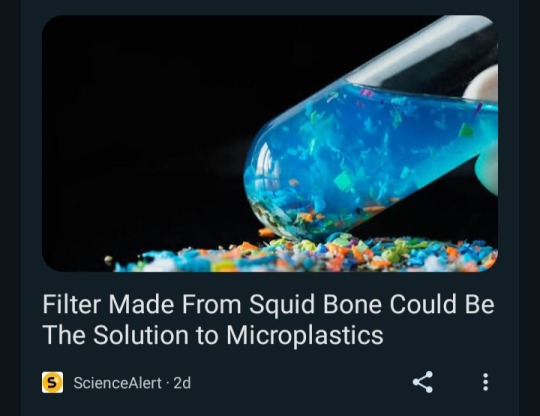
Oh, how the tables have turned... not the source of the magical microplastics in the water, but the remover of them...
#no I didn't read the article lol#splatoon#splatoon 3#splatoon fandom#splatoon lore#alterna#splatoon alterna#alterna splatoon#return of the mammalians#splatoon 3 hero mode#neo agent 3#mr grizz#mr. grizz
13 notes
·
View notes
Text
You Could Be Using "AI" RIGHT NOW
A useful little video from Vox about how “artificial intelligence” is everywhere these days, like microplastics, and like microplastics, you may not be entirely aware of how pervasive it is in your day-to-day life. Part of the problem, I think, is the label “artificial intelligence,” which is both extremely broad and extremely inexact — the “AI” of a Photoshop “remove” tool is different from the…

View On WordPress
22 notes
·
View notes
Text
Solarpunk by the sea

Let me continue this little series on Solarpunk in different kinds of biomes and let me talk about the one biome that probably has the most people living by it: The ocean.
The ocean is a weird thing for us. While we cannot survive in it, we thrive if we have it close by. We cannot consume the salt water, of course, but we were always drawn to the ocean and fish, of course, have for many civilization been one of the biggest sources of food. Most people on this planet currently live somewhat close to a coastline of some sort.
While civilization might have started in those dank river valleys, many of the big civilization at some point needed access to the ocean. For the fish, but also to further advance. As the ocean allowed to move a lot of stuff rather quickly.
But... currently we are not doing well with the ocean, do we? There is a reason the whales are rebelling and shit.
We are currently overfishing the ocean, with the garbage from industrial fishing (like fishing nets) being a large part of the macroplastic in the oceans.
Meanwhile, the ocean like everything else, is also filled with microplastics - a bit part of which come from wheel abrasions from cars and the like.
And, of course, with the ocean warming, it can no longer hold oxygen and basically fishes die of in mass.
So, let's talk about it. How do we live with the ocean? How do humans best thrive near the ocean? And how do we protect this biome?
First of all: Industrial fishing has to go. People catching their own fish are fine. Even like Joe and his family catching fish for their little local fishmonger is fine. But industrial fishing that catches fish for this big international company that makes sure that everyone - no matter how far away from the coast they are living - has fish in their freezer... Yeah, we cannot have that. Not only because we overfish certain species of fish and endanger the whales, but also because through this we completely mess with food chains and eco systems, because - for example - the fish shitting is actually kinda important for the ocean.
So, yeah. No big fishing. If you live not close by an ocean, you will not get any ocean fish. Sorry.
Now, people living close to the ocean obviously face one big challenge: The ocean will often bring some sort of storm in relatively regular intervals. I will not go into the reasons of this (if you wanna see me geek out over meteorology, just say - I can do that). But of course everyone knows about all those Hurricanes that will strike the coastlines every year.
Different human cultures have adjusted differently to this. Basically there are two ways to go about it: Either you just accept that your house will be destroyed and build it in a way, that it will be easy to rebuild... Or you try to build a house that will wistand most storms with only minor damage.
This could be done by using sturdy materials - or by doing the other thing: Put your house on stilts. Which can be surprisingly effective, which is why we see it around the world.
Ideally you will not build the houses directly at the edge of the water. While it is fancy, duh, it also removes the saving land between you and the ocean.
Which also brings me to the sponge biomes, that often get ignored too often. Modern civilization often has destroyed those sponge areas, that usually would help take the swell of a storm surge. Those areas need to be recultured. Both to save them as biomes, as well as helping keeping us save from the floods.
When it comes to energy and renewables... Well, great news. The coastlines give us an endless amount of possibilities. Off-shore wind turbines work great. We probably will have soon enough proper tidal turbines, too. Maybe we will even figure out wave energy. And yes, you can put up photovoltaic panels.
Humans fear the ocean. Humans cannot survive in the ocean. But at the same time, we love the ocean and it has helped us to survive for so long.

#solarpunk#solarpunk fiction#solarpunk worldbuilding#ocean#oceans#shoreline#sustainability#renewable energy#save the oceans#save the whales#fishing
58 notes
·
View notes
Text
Most microplastics and ocean plastic are fishing nets but that doesn't mean that other plastics should not be eliminated as well. I see that sometimes as sort of a "rebuttal" to like, the concept of recycling or phasing out plastics
But like, remember: Removing plastic straws and the packaging is just outright a good thing. You have to attack a problem from multiple fronts; cutting down on single-use plastics reduces dangerous litter on the local level and more broadly reduces demand for plastic from society as a whole. One should also be vocally opposed to the use of plastic in fishing nets and in general be supportive of ocean health, of course! That's a problem which needs highlighting. But that does not mean you should turn a blind eye to the use of other single-use plastics or accept them. And that does not mean that trash pollution does not otherwise matter.
Plastic is outright forever (Well - not anymore, stuff is starting to rot it. But it will take a long time for it to rot.) So, any use of plastic needs to be a measured use. I'm not so hard on it that I think it has no place in creation; plastic miniatures and figures are good; plastic in medical supplies can be important. But common single-use plastic in places like shelf-stable food packaging should go the way of leaded gasoline.
I see posts sometimes about how it's mostly huge companies more than the individual which are responsible for major environmental degradation like this. And this is true. But don't mistake that for "There is only one major problem and that's all we have to care about." Things are simply not that easy. And don't mistake that for personal choices not mattering at all - combined, group choices and pressure from people collectively are why single-use plastics are being phased out in the first place, and opposing the idea that an individual can do something to help with garbage and litter is nothing but an appeal to apathy.
7 notes
·
View notes
Text
My Journey to Minimalism and Sustainability, and How You Can Start Yours
I began my journey towards minimalism and sustainability when I was 13, thanks to my favorite famous twins, Bill and Tom Kaulitz from the German band Tokio Hotel. They had just gone vegetarian, and their lifestyle shift made me rethink my own habits. I’ve always had pets—cats, dogs, hamsters, and even a horse I visited and fed every day (Okay, it wasn't mine, but I wished it was!)—but up until then, I hadn't really considered the wellbeing of wildlife or the broader environment.
Cutting out meat was my first step towards a more eco-friendly lifestyle. Over the years, I’ve made plenty of small swaps and sacrifices to lessen my impact on the planet. But don’t worry—sustainability doesn’t have to be overwhelming! In a world where some eco-warriors are aiming to fit a year’s worth of waste into a single jar, it’s easy to feel like you have to go to extremes. The truth is, you don’t have to make drastic changes to start your sustainability journey.
Below are some simple swaps I’ve made that have helped me live a little greener...

Bamboo Charcoal Menstrual Pads
Switching from disposable pads to reusable bamboo charcoal pads was one of the easiest changes I made. They’re washable, so still hygienic, plus they cut down on waste and microplastics. After the recent news about there being arsenic in tampons, I’m so glad I made this switch years ago!
Reusable Water Bottles and Coffee Cups
Instead of buying plastic water bottles or using disposable coffee cups, I now carry my own reusable versions. Not only does this help reduce plastic waste, but it’s also so convenient to always have a water bottle on hand.
Reusable Cotton Makeup Pads
I used to go through countless cotton pads while removing makeup. Now I use reusable ones that I can just toss in the wash. It’s a small change, but it makes a difference in how much waste I create each day.
Eating Less Meat
If you care about animals and want to reduce your carbon footprint, eat less meat. You don’t have to cut it out completely to make a difference. If you want to go the extra mile for our oceans, you can cut down your fish intake too.
Reusable Shopping Bags
We’ve all heard this one, but it’s such a simple habit to get into! Keeping reusable shopping bags in my car or bag ensures I never have to rely on plastic ones when I’m out.
Recycling
This might sound basic, but committing to recycling properly is one of the simplest ways to contribute to a healthier planet. I make sure to recycle everything I can, from paper and plastics to glass and metals.
Those are a few swaps I’ve made over the past twelve years, but there’s always room to improve, so here are a few things I plan to try next:
Buying Less Clothing
I’m a legit shopping addict and tend to spend more than I make 😅 but I know fast fashion has a huge impact on the environment, so I’m working on being more mindful about what I buy and sticking to timeless, sustainable pieces.
Not Upgrading Tech Every Couple Of Years
It’s tempting to get the latest phone or gadget, but holding onto tech for longer reduces electronic waste.
Avoiding Palm Oil
Palm oil is in so many everyday products, and its production is harmful to the environment. I’m aiming to be more conscious about the products I buy and look for palm oil-free alternatives.
Composting
This is a big one I’ve been meaning to start! Composting food scraps instead of throwing them away can significantly reduce the amount of waste I send to landfills.
Sustainability is a journey, and it’s all about progress, not perfection. You don’t need to change everything at once. Start small, make swaps where you can, and keep growing from there. Every little bit helps!
What are some eco-friendly changes you’ve made? I’d love to hear your tips and ideas in the comments!
4 notes
·
View notes